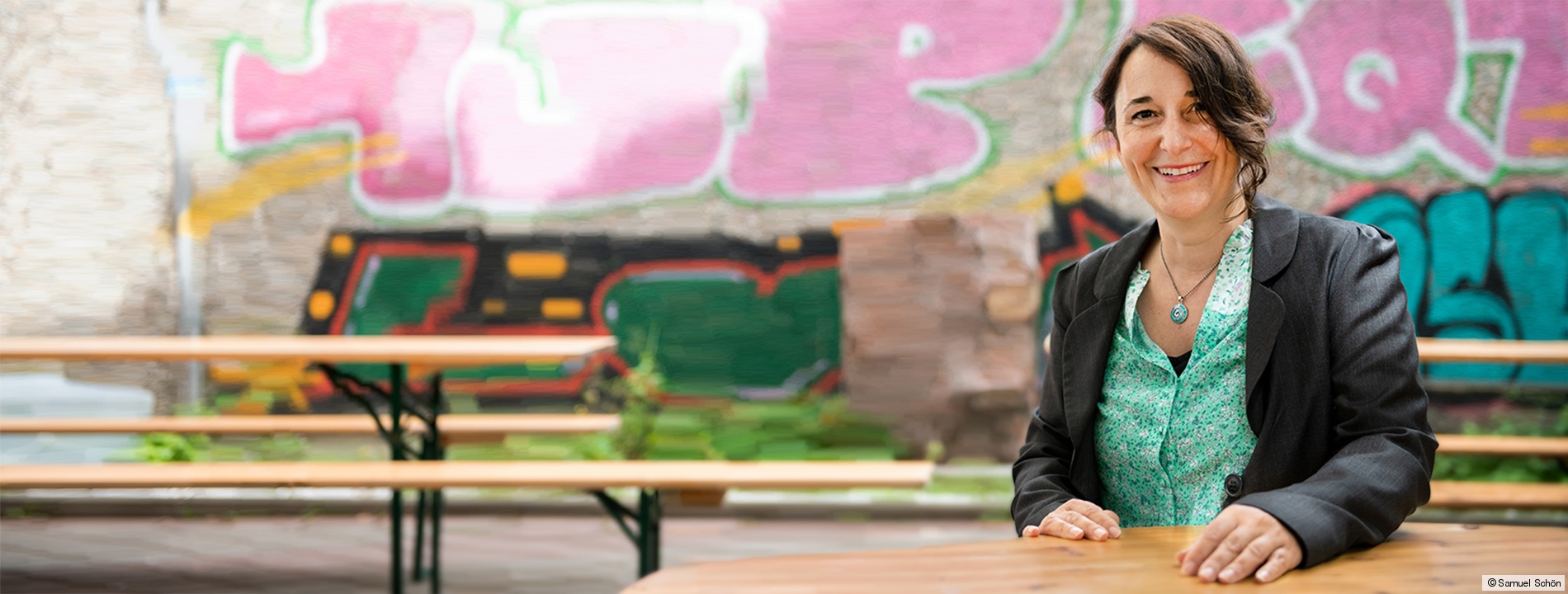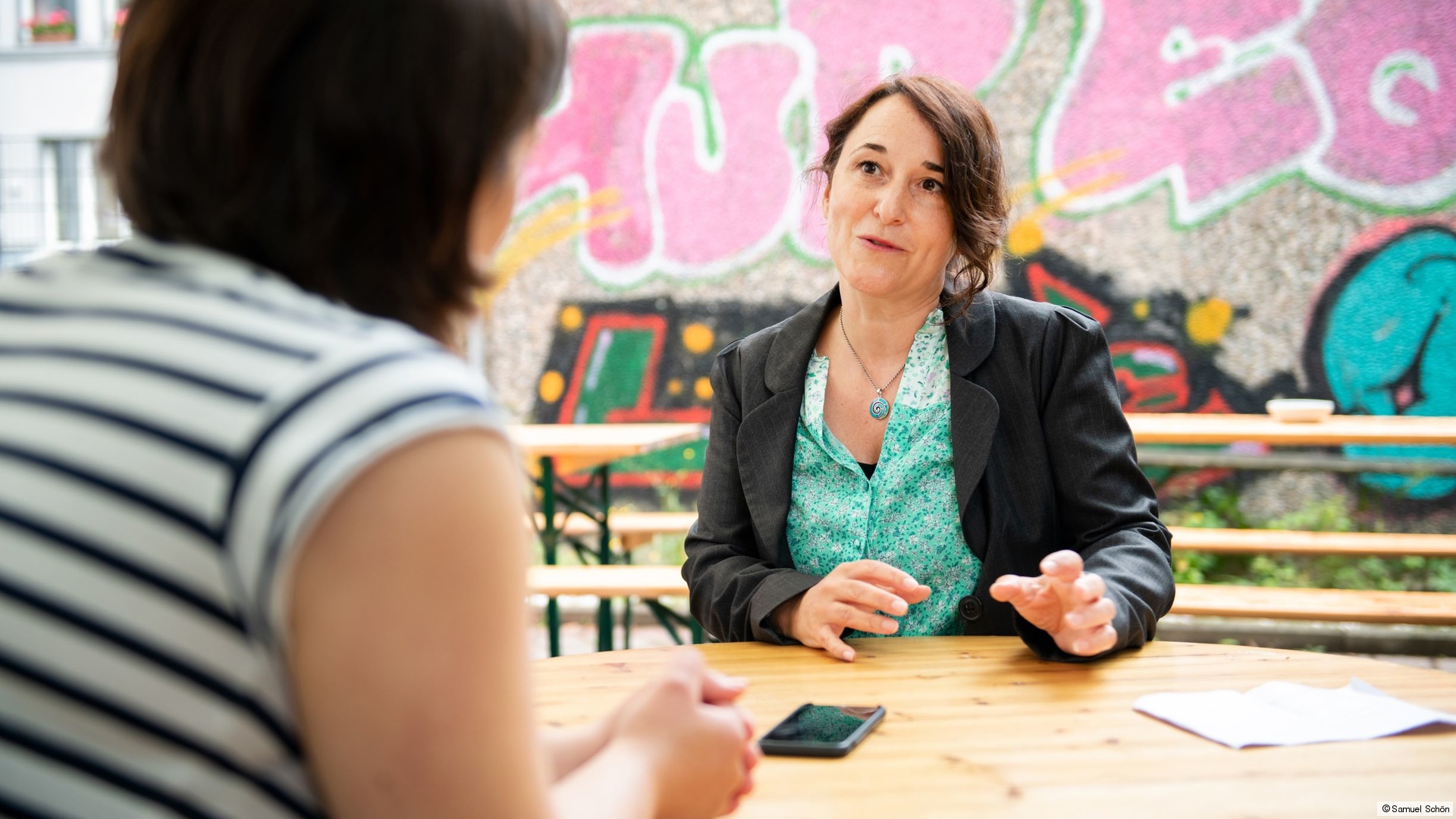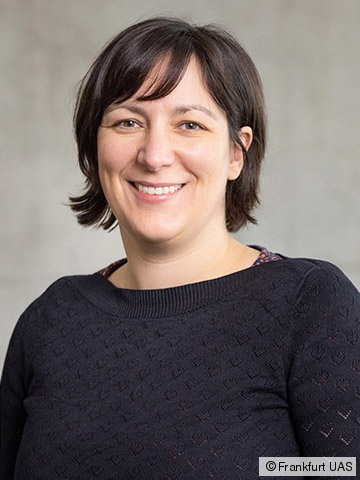The Innovation Project
Prof. Dr. Paschalidou would like to develop a didactic concept during her innovation professorship in order to shape social diversity in times of crisis in a recognition-oriented and anti-discriminatory manner. The basis for this project is the examination of power relations and exclusion mechanisms, which are analyzed from two perspectives: anti-Semitism and racism criticism. In its concrete implementation, the concept follows three strategies:
- A didactic teaching concept for an education strategy critical of discrimination is to be developed. This concept will provide various digital and analog modules that can be used across departments.
- Internal university networks are to be further consolidated in order to promote "bottom-up" and "top-down" processes.
- The development and evaluation of this concept should be process-oriented through dialogue-oriented scientific communication. Events that bring students, young scientists, researchers and practitioners from the Rhine-Main and Hanau region into conversation with each other should be initiated and cooperation in the region strengthened.
In Conversation with Prof. Dr. Anastasia Paschalidou
Ms Paschalidou, what do you do in your innovation professorship?
I deal with the topics of racism and anti-Semitism. My project is based on looking at different practices of exclusion and on power relations. The first focus relates to the development of a didactic teaching concept for an education strategy that is critical of discrimination and the creation of digital and cross-departmental learning materials. The second focus is on building internal university networks to promote bottom-up and top-down processes. One of my goals, for example, is to open up a dialogue space for education critical of racism and anti-Semitism with a peer-to-peer network, thereby enabling projects. I would like to talk to the students about how we can better perceive racism and anti-Semitism. The third focus is on dialogue-oriented science communication, taking into account the Rhine-Main and Hanau region. Events are to be implemented here in the sense of dialogical science communication. In line with this, we are conducting a study to determine where there is a need for change and whether, for example, network work or reduced administrative structures can be used to create low thresholds.
You have chosen the Café Profitratte as a symbolic location for your innovation project. Why?
I put up a billboard in front of the café with posters from the February 19 initiative documenting questions about the Hanau investigative committee. Below that is a note that students can talk to me about racism and anti-Semitism every Thursday between 12 and 1 p.m. I'm sitting here in the café on this day and I'm available to everyone. In these conversations, a space opens up for new ideas and projects, which I take with me and examine their feasibility together with the students. What ultimately emerges from this, however, depends on the people involved.
What contribution can your project make to our society, which is currently facing many challenges?
Our society and we as a university must find answers as to how constructive cooperation can look like - also so that people do not seek refuge in destructive conspiracy ideologies. When we train diversity, democracy, conflict and communication skills, we give people tools to actively shape their lives. If we continue to reduce institutional discrimination, then we will give students with different backgrounds appropriate access. For me, this means taking on social responsibility.
What does the project mean for you personally?
Assuming social responsibility means a lot to me. I think it's very important that we get involved in society and work together to create a framework that seeks answers, that constructively deals with social challenges and that takes as many groups of people as possible into account. In my view, it is necessary to get involved and look for solutions with intelligence and creativity. In particular, I would like to inspire students to use their opportunities to have an impact on society and to help shape it, and to further develop their skills for this.
Thank you for the interview!




